’21 Honoree Kelly Bohrer

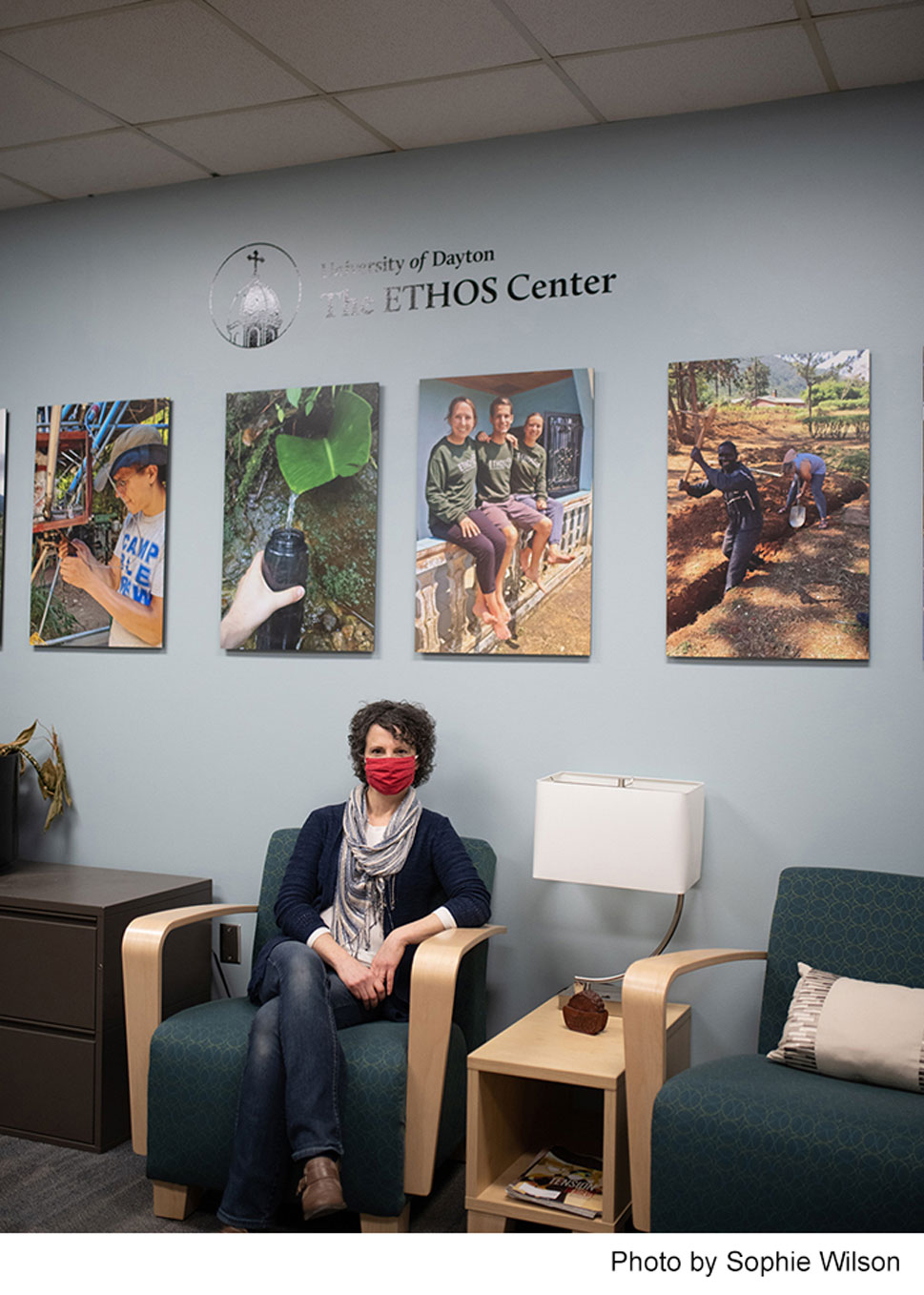
“When I have fears, I invest in being more productive. If I get a sense that there is confusion and ambiguity, I get to work by supporting other people and making sure they have what they need. When things are out of my control, I focus on what I can control. During the summer, I truly felt like I could still control doing work for a better world, even though horrible things were happening with systemic racism issues. That’s part of my work as a community engagement professional and as a social justice educator. Building skills of empathy, listening to other perspectives, and giving people the space to share those perspectives is a piece of what I do. I can’t do community engagement work well if I’m not really listening and being in relationship with people. When I am, I can work with them to create a vision for a better future for their neighborhood, or their family, their church, or whatever it might be. Through the years, people have said it’s a gift to be able to facilitate those types of conversations. That comes out of a deep sense of interdependence, and that probably comes from my understanding of ecosystems.”

“When I have fears, I invest in being more productive. If I get a sense that there is confusion and ambiguity, I get to work by supporting other people and making sure they have what they need. When things are out of my control, I focus on what I can control. During the summer, I truly felt like I could still control doing work for a better world, even though horrible things were happening with systemic racism issues. That’s part of my work as a community engagement professional and as a social justice educator. Building skills of empathy, listening to other perspectives, and giving people the space to share those perspectives is a piece of what I do. I can’t do community engagement work well if I’m not really listening and being in relationship with people. When I am, I can work with them to create a vision for a better future for their neighborhood, or their family, their church, or whatever it might be. Through the years, people have said it’s a gift to be able to facilitate those types of conversations. That comes out of a deep sense of interdependence, and that probably comes from my understanding of ecosystems.”
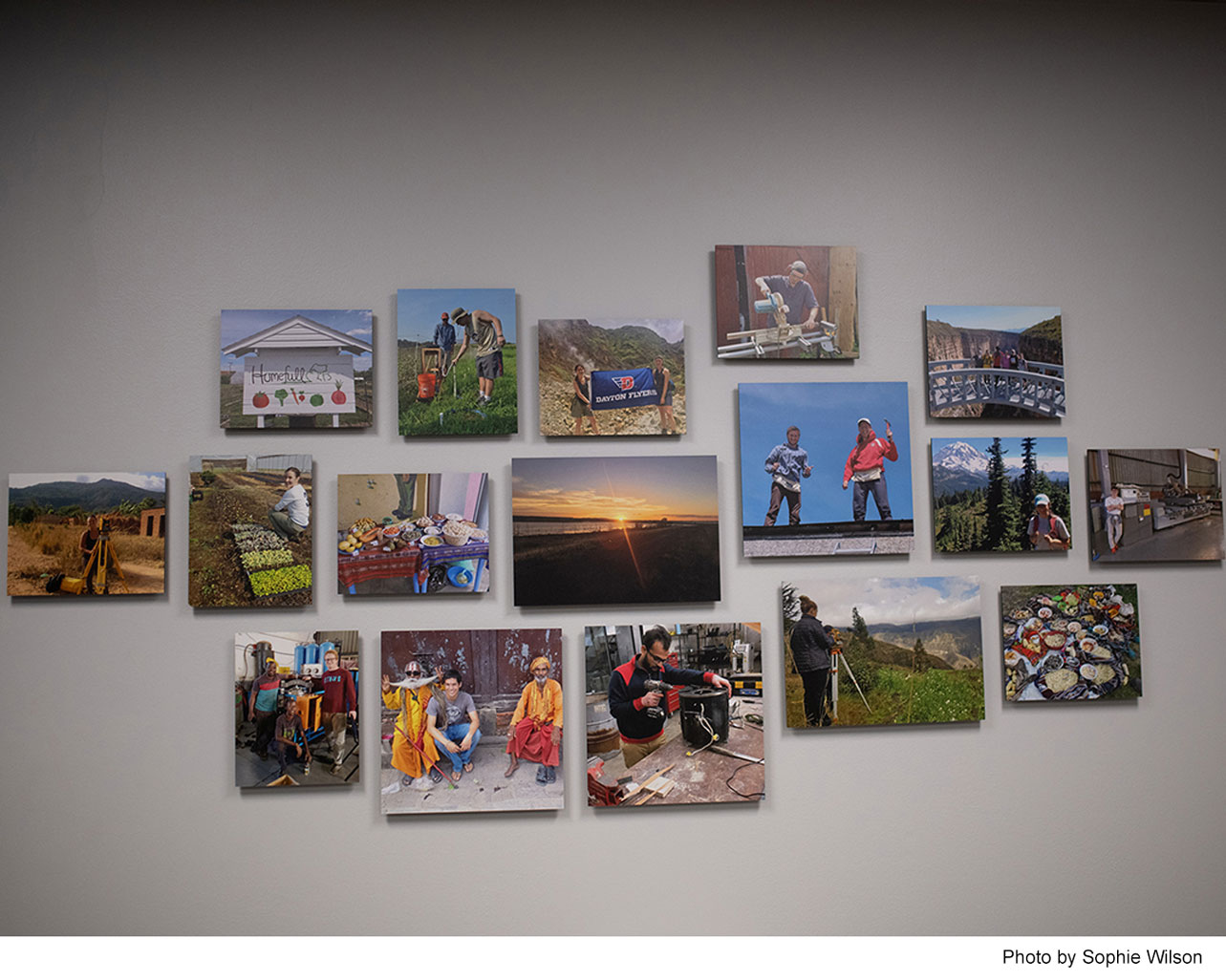
“I’m an environmental biologist by training, and I was specifically focused on ecology and ecosystems because I’ve always had that sense of how everything’s actually interconnected – not spirits just spiritually interconnected, and not just ‘interconnected’ because we impact each other, but ‘actually interconnected,’ as Fr. Richard Rohr says. And I think that’s what drives me. My career and my vocational journey is very emergent. I constantly ask myself, ‘Where are my assets taking me?’ or ‘Where am I being called?’ ”

“I’m an environmental biologist by training, and I was specifically focused on ecology and ecosystems because I’ve always had that sense of how everything’s actually interconnected – not spirits just spiritually interconnected, and not just ‘interconnected’ because we impact each other, but ‘actually interconnected,’ as Fr. Richard Rohr says. And I think that’s what drives me. My career and my vocational journey is very emergent. I constantly ask myself, ‘Where are my assets taking me?’ or ‘Where am I being called?’ ”
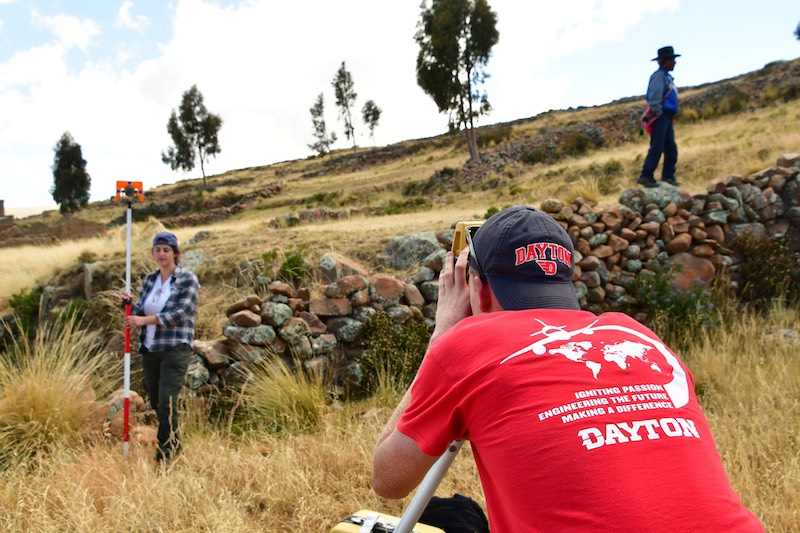
“At the time the pandemic hit, we had about 25 students preparing for a summer international immersion, and we also were in the middle of interviewing students to do our summer Dayton and domestic programs. We thought, ‘This means canceling all of our programs,’ but I’m thinking, ‘No, no, no, we can’t do that.’ I know how important the programs are for students. Our programs change their worldviews. It brings them into a new way of looking at life, and it brings them into relationships that I know are so important to all of us. It felt like we shouldn’t create more emptiness and more disruption in this world that’s now heavily disrupted.”

“At the time the pandemic hit, we had about 25 students preparing for a summer international immersion, and we also were in the middle of interviewing students to do our summer Dayton and domestic programs. We thought, ‘This means canceling all of our programs,’ but I’m thinking, ‘No, no, no, we can’t do that.’ I know how important the programs are for students. Our programs change their worldviews. It brings them into a new way of looking at life, and it brings them into relationships that I know are so important to all of us. It felt like we shouldn’t create more emptiness and more disruption in this world that’s now heavily disrupted.”
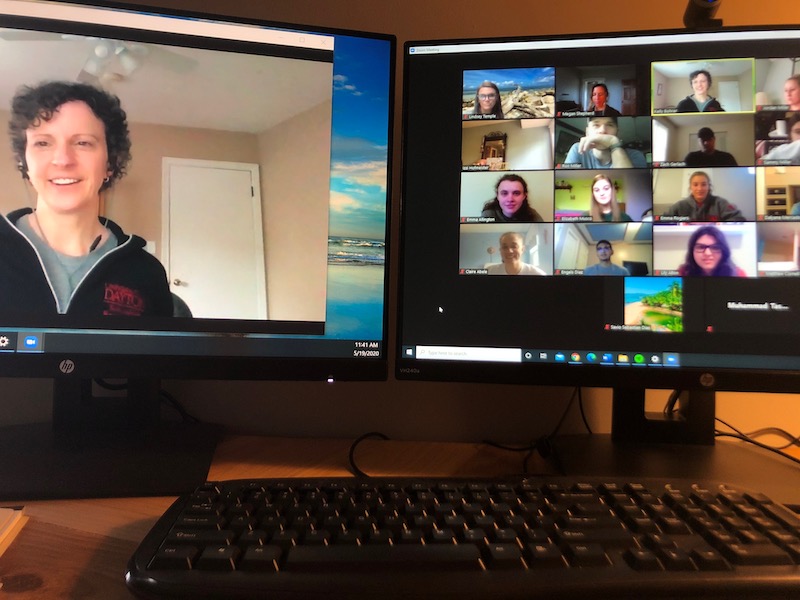
“So, then it became, ‘What are our tools? What are our assets? What can we do to make something good of this disruption?’ Lindsey (Temple) and I had two really incredible GAs to work with, and we said, ‘Let’s do something, because we have students who want to do something, and we have partners who want to do something.’ We started weekly breakfast conversations over Zoom with our community partners. They told us, ‘We really appreciate you just bringing us all together. How can we support the students? How can we help the students support our local Dayton community?’ There was really good forward momentum, and we just went with it.”

“So, then it became, ‘What are our tools? What are our assets? What can we do to make something good of this disruption?’ Lindsey (Temple) and I had two really incredible GAs to work with, and we said, ‘Let’s do something, because we have students who want to do something, and we have partners who want to do something.’ We started weekly breakfast conversations over Zoom with our community partners. They told us, ‘We really appreciate you just bringing us all together. How can we support the students? How can we help the students support our local Dayton community?’ There was really good forward momentum, and we just went with it.”
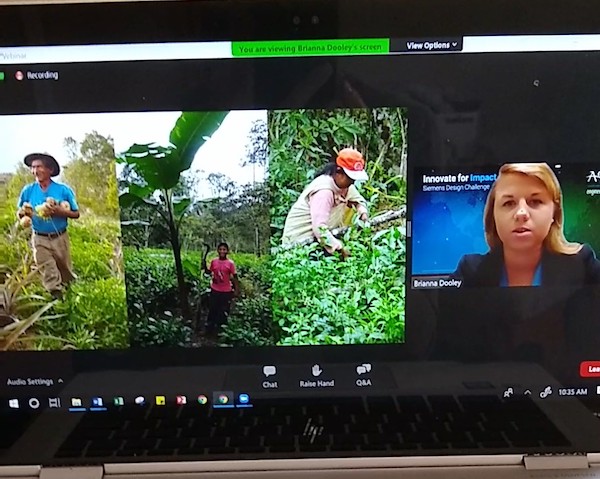
“Then we turned to the students. I got a little creative with where we could get some funding for stipends, and we had 19 students for the summer, each at about 20 hours a week. So then what we had to figure out was how to turn every part of the program into a virtual, remote space. We knew we had to keep in contact with them several times a week, and we asked the partners if they could connect with them during meetings. One partner met with his two students every day! I love that we were able to bring that mutual benefit to our students and to our partners. That’s important to the relationships we build in the ETHOS Center.”

“Then we turned to the students. I got a little creative with where we could get some funding for stipends, and we had 19 students for the summer, each at about 20 hours a week. So then what we had to figure out was how to turn every part of the program into a virtual, remote space. We knew we had to keep in contact with them several times a week, and we asked the partners if they could connect with them during meetings. One partner met with his two students every day! I love that we were able to bring that mutual benefit to our students and to our partners. That’s important to the relationships we build in the ETHOS Center.”
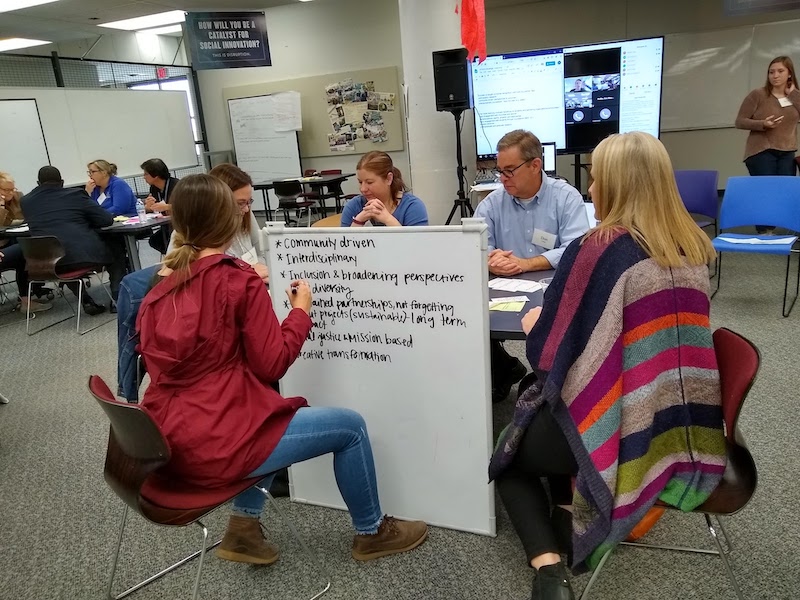
“Toward the end of the summer, we had to ask ourselves, ‘How can we keep offering these opportunities to students?’ It’s so important because the ETHOS Center is mission-centric. That’s what drives us, to keep on meeting our mission. We have to keep doing this, but it has to be in new ways. We just dig into our opportunities, and get creative because we aren’t recruiting and interviewing students for international immersions. We have decided to focus on a new Engineering and Human Rights initiative. The Human Rights Center and Human Rights Studies Program asked if the ETHOS Center would be interested in exploring what can be learned at the crossroads of engineering and human rights. We suggested the development of an academic minor. In December, we started a faculty learning community with 20 faculty involved. They’re working toward developing or enhancing courses for the minor.”

“Toward the end of the summer, we had to ask ourselves, ‘How can we keep offering these opportunities to students?’ It’s so important because the ETHOS Center is mission-centric. That’s what drives us, to keep on meeting our mission. We have to keep doing this, but it has to be in new ways. We just dig into our opportunities, and get creative because we aren’t recruiting and interviewing students for international immersions. We have decided to focus on a new Engineering and Human Rights initiative. The Human Rights Center and Human Rights Studies Program asked if the ETHOS Center would be interested in exploring what can be learned at the crossroads of engineering and human rights. We suggested the development of an academic minor. In December, we started a faculty learning community with 20 faculty involved. They’re working toward developing or enhancing courses for the minor.”
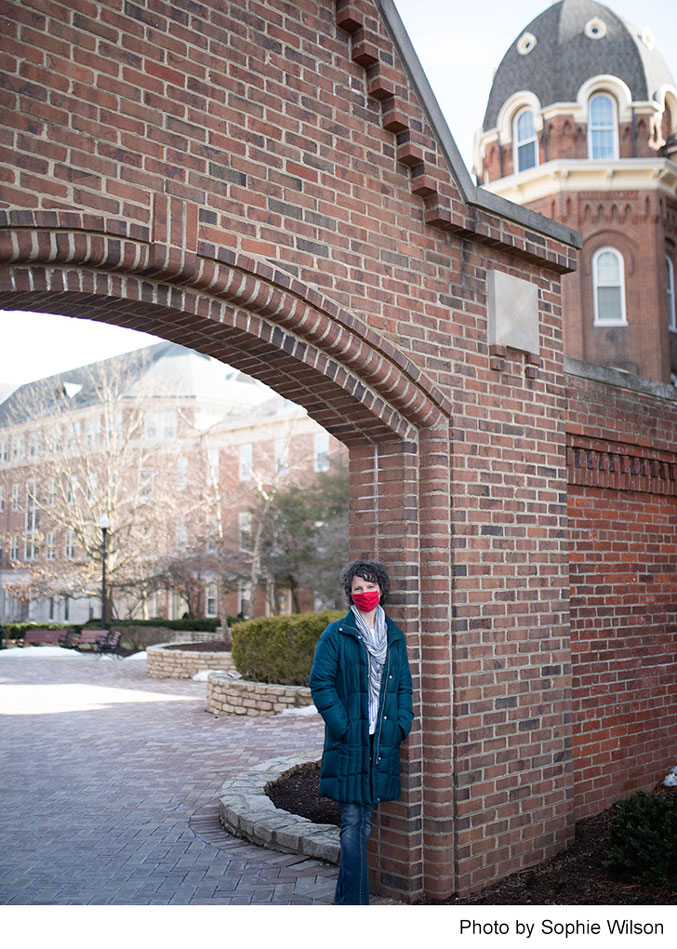
“When I look back, I think, ‘Oh my gosh, I did a lot this year!’ There were times where I asked, ‘At what expense did I do everything that I did for others and for the ETHOS Center?’ Many times I was exhausted, and I was working way more than my typical amount, and going to meetings all day long is exhausting, and I was managing my children. I certainly don’t want to give the impression that I didn’t struggle, I did, but with my network, it was easier. I have a lot of privilege in that I do have a good community support network. I am a part of a faith community, and my parents live in town. I have really great neighbors. I wanted to make sure that I gave that same feeling and that same opportunity of support to other people as they struggled or as they were facing fear or confusion or kids at home.”

“When I look back, I think, ‘Oh my gosh, I did a lot this year!’ There were times where I asked, ‘At what expense did I do everything that I did for others and for the ETHOS Center?’ Many times I was exhausted, and I was working way more than my typical amount, and going to meetings all day long is exhausting, and I was managing my children. I certainly don’t want to give the impression that I didn’t struggle, I did, but with my network, it was easier. I have a lot of privilege in that I do have a good community support network. I am a part of a faith community, and my parents live in town. I have really great neighbors. I wanted to make sure that I gave that same feeling and that same opportunity of support to other people as they struggled or as they were facing fear or confusion or kids at home.”
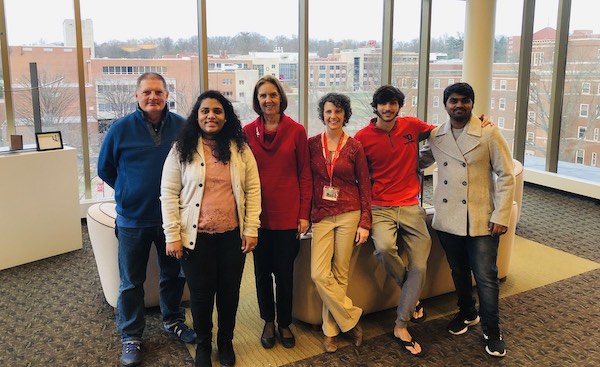
“I worked way more than normal because I knew that the positive energy and all the work that I was putting in was bringing more goodness, more positive energy into the world. I have that responsibility and felt accountable to other people to do that. I believe I’m always developing, and that includes participating in reasoned discussions and webinars, all the time, about systemic racism and white privilege. I know I don’t know it all, and I know that I’m always going to be learning. But I know I’ll never fully understand because I do have that white privilege. I’m also very aware that I have a responsibility to be open and be in the world, and sharing in the world. Forming these relationships and hands-on embracing cultural humility feels right to me.”

“I worked way more than normal because I knew that the positive energy and all the work that I was putting in was bringing more goodness, more positive energy into the world. I have that responsibility and felt accountable to other people to do that. I believe I’m always developing, and that includes participating in reasoned discussions and webinars, all the time, about systemic racism and white privilege. I know I don’t know it all, and I know that I’m always going to be learning. But I know I’ll never fully understand because I do have that white privilege. I’m also very aware that I have a responsibility to be open and be in the world, and sharing in the world. Forming these relationships and hands-on embracing cultural humility feels right to me.”
